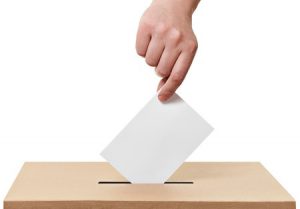Following the last Alberta election, there was a lot of talk about how social media had been a better predictor of the election results than polls leading up to election day. This may have had a lot to do with the fact that polling ended four days before we voted, but it’s also true that social media has changed the way we talk about politics, and our interactions on social media influence our political views.
Social Media as a News Filter
Social media has become a news source that people gravitate around. On Facebook, we can find articles and videos shared by pages (politicians, for instance) that we follow, or our friends and family, reflecting the issues that are important to them. Online conversations are like the modern day version of the water cooler — often they are amongst people who know one another, and they serve to inform and influence at a grassroots level.
Twitter serves even more effectively as a real-time news source, with events often being tweeted as they happen, and speculation and opinion beginning immediately. The minute something is happening in the world such as a politician speaking out of turn or the announcement of a provincial budget, the news is on social media – Twitter in particular. A few months ago, when the budget was announced, people were immediately chiming in on the various issues affected by the budget and offering opinions of what this means for the political landscape.
Social Media as the People’s Voice
Social media conversations can allow people to speak up when they might not have otherwise. The same person who might be hesitant to stand up in front of a crowd at a town hall meeting, or say how they really feel to a candidate’s face during a door-knocking campaign can easily click to retweet an opinion or share a blog post. Plenty of people are willing to jump on a bandwagon when it doesn’t mean having to be the first to speak out. It is this wave of popularity around a given issue that causes social media frenzies. Once one person posts on the issue and it gets shared by a few people, it grows and a small idea or opinion becomes the words of a community.
If they pay attention, politicians can gain a clear understanding of where their constituents stand on the issues and act accordingly. The social filter is not as strong on social media; people are more honest when posting and there is more transparency to how voters are feeling. This is a very powerful element about elections that is changing the way politicians campaign if they know how to listen to their followers.


